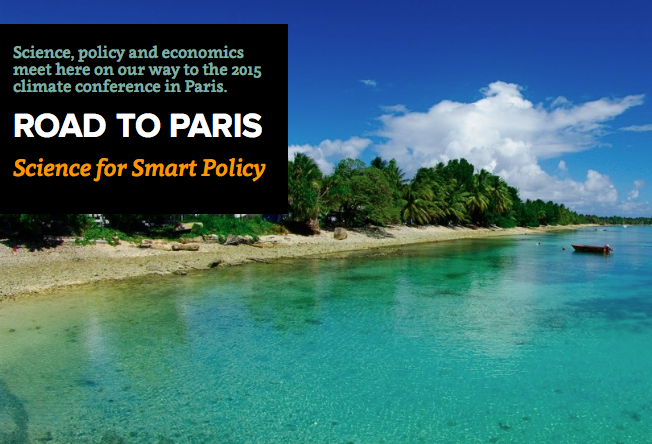Island nations are on the frontlines of climate change, more vulnerable than other countries to extreme weather and sea level rise. Many are preparing their younger generations to deal with the changes of their local environment, and of those the Dominican Republic has become a champion of climate education. Some 3,000 teachers have been trained in the country and the causes and effects of global warming are now taught in schools of all levels. Other countries with strong climate education programmes are Costa Rica, Mauritius, the Cook Islands, Tuvalu, the Philippines and Vietnam. Not surprisingly, they are all natural paradises, with vital resources for their inhabitants but highly exposed to changing weather patterns.
New learning needs are emerging with climate change. Rich countries such as Sweden and Denmark, Germany and Japan first pioneered environmental education, but the concept has now been embraced across the world. “Only ten years ago, this area was completely unknown. Now almost every country is including climate change in national curricula,” explains Julia Heiss, Education Programme Specialist at UNESCO.
Traditionally, the climate system is studied in science class, starting at primary school. It trespasses into geography and is addressed in more complexity at the secondary level. The objective of UN agencies is to link it to sustainable development and integrate it into the entire curriculum.
“Global warming is not only a physical phenomenon, it impacts social sciences and is connected with migrations, indigenous traditions, as well as ethics,” said Heiss. “Younger generations have to be prepared for new challenges and changing lifestyles. They have to get the skills for new job opportunities in the green economy too.”
The Dominican Republic is one of 12 pilot countries of UNESCO’s Climate Change Education for Sustainable Development (CCESD) programme. In the Caribbean nation, environmental education became mandatory for all schools in 1998, but climate change was included later and the government committed to scale it up rapidly.
“Awareness raising and education” are included in the United National Framework Convention on Climate Change (UNFCCC). On this basis, 13 UN agencies, including UNESCO, UNICEF, UNEP, UNITAR and the UNFCCC, have formed an alliance to integrate climate education in national policies and increase the understanding of global warming. “More than 14 million students and 1.2 million teachers in 58 countries have been engaged in such learning,” wrote in May Irina Bokova, Director-General of UNESCO, and Christiana Figueres, Executive Secretary on the UNFCCC.
The next step of the programme, which started in 2005, is to apply sustainable development principles also to school operations and management.
One of the partners of UNESCO is Eco-schools, an initiative created in 1992 and active in 59 countries. “Beyond the knowledge about the environment and climate change, it is about values, care and empathy so the future generations will be more aware and sensible about the environment,” says the head of the UK branch, Dr. Morgan Phillips. They help schools to develop environmental projects with children, such as mapping local species or reducing waste. The projects start in the classroom, then expand to the school and the community.
Other organisations promote education on climate change. Action Aid also recently launched an online toolkit, with GIS mapping and interactive games, to help pupils understand climate change through the stories of four children in Bangladesh. Samsung provided funding to UNESCO to run a climate education programme in coastal areas of Vietnam.
Interest is high as students are keen to learn. A survey carried out by the National Union of Students in the UK showed that 69% of interviewees were keen to learn more about climate change and 84% agreed to some extent that colleges should incorporate and promote sustainable development.
But like many other areas of the climate change discussion, education requires policy decisions and political agreement. This can be difficult to reach in countries where the topic is seen as controversial. It is also necessary to have collaboration among ministries, funding, available experts, teachers training and tools for students. “It is a lot to ask from education systems, especially those in poorer countries or which are already not very functional,” says Heiss.
Last year at the UN climate change conference in Lima, ministers and heads of delegation called on governments to include climate change into school curricula and to promote awareness as part of their national climate change plans. “We hope that education will be given a stronger role in the Paris agreement,” Heiss added.
This article was originally published on Road to Paris, the blog of the International Council for Science (ICSU), on 4 December 2015. It was also included in the collection “Country at Risk Speak Out” @ International New York Times Voices. Photo: Tomoaki Inaba/CC BY-SA 2.0, Road to Paris.
